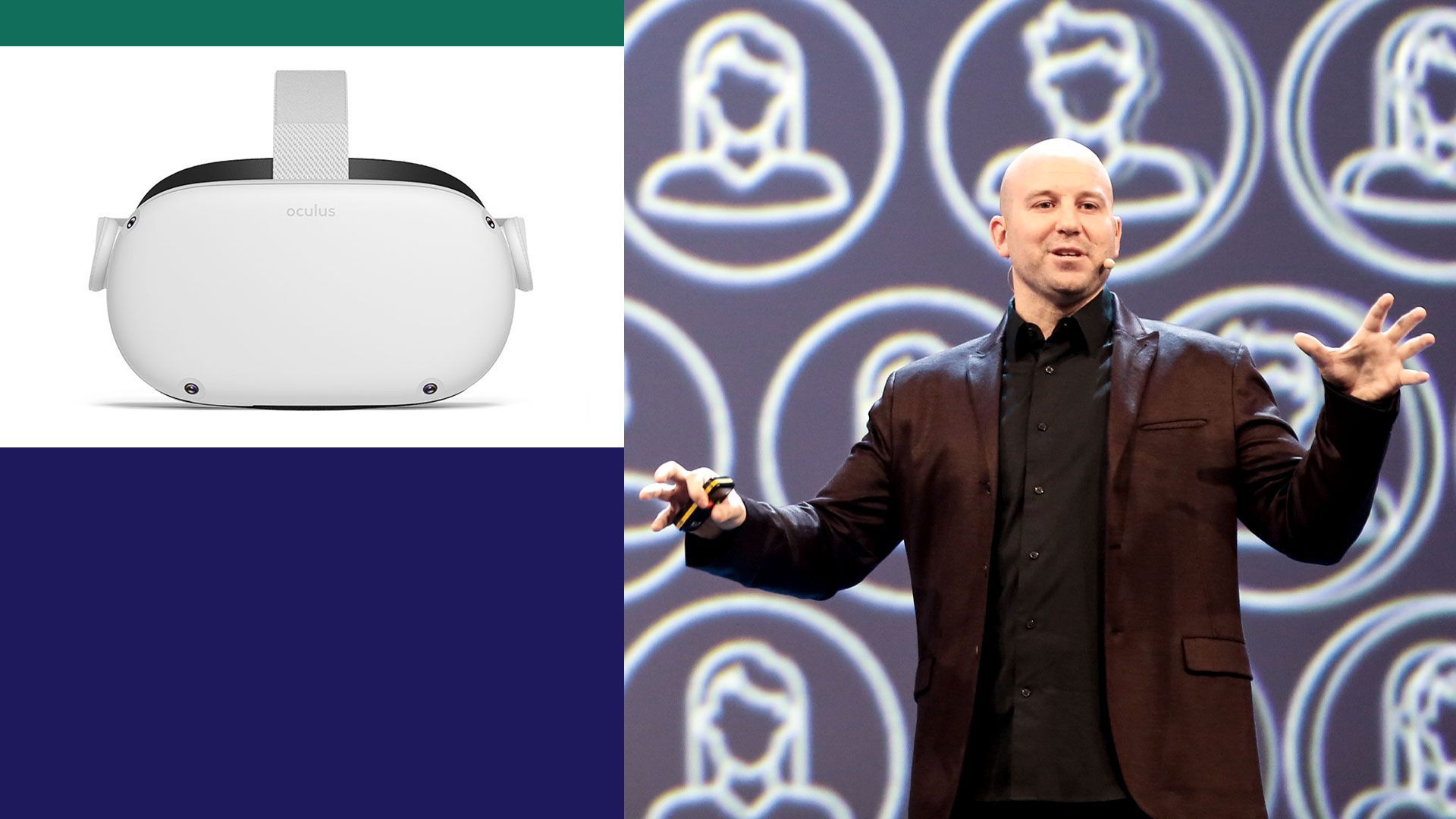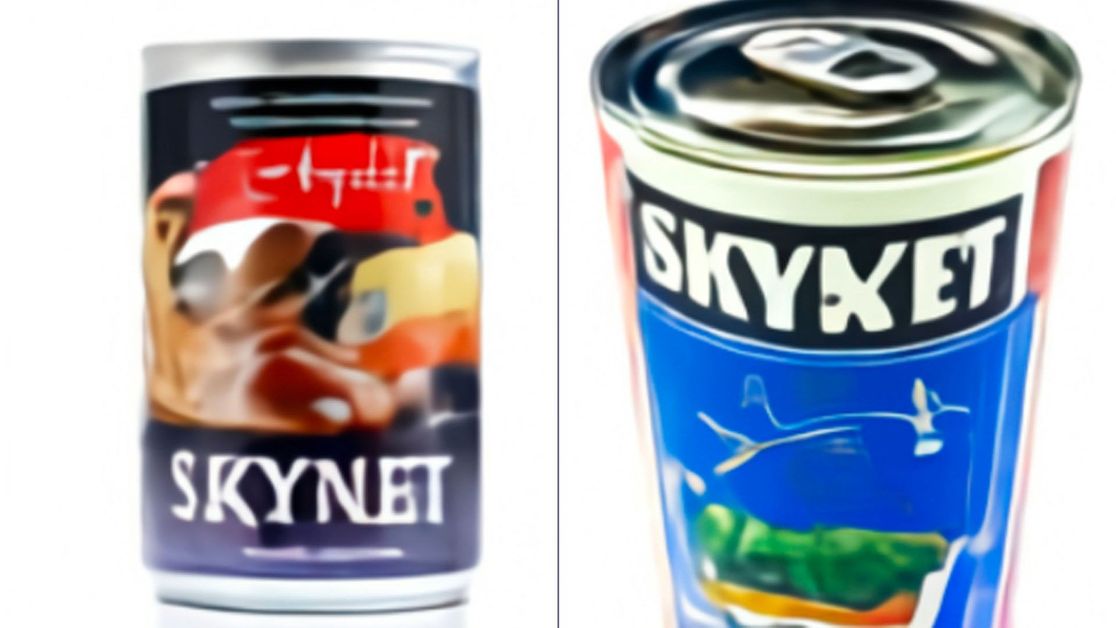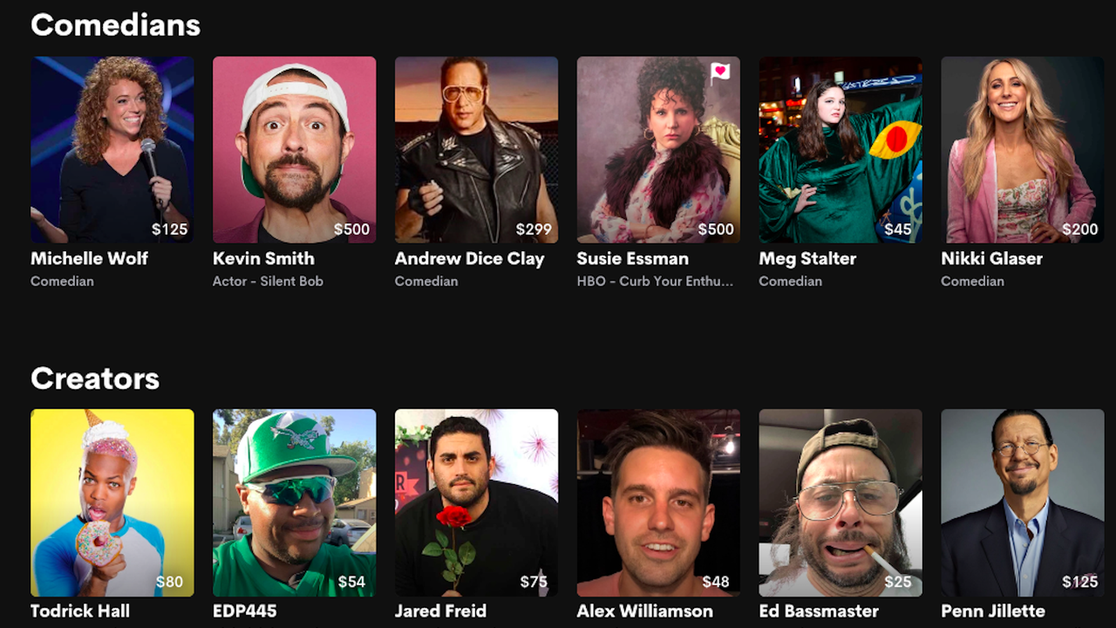| | | | | | | Presented By Cytonics | | | | Login | | By Ina Fried ·Jan 06, 2021 | | Congrats to Team USA, which defeated Canada last night in the World Junior Ice Hockey Championships 2-0. Today's Login is 1,391 words, a 5-minute read. | | | | | | 1 big thing: Facebook's hardware gains traction |  | | | Photo illustration: Eniola Odetunde/Axios. Photos: Picture Alliance, Amy Osborne/Getty Images | | | | Year-end sales numbers are telling Facebook executives that their big bet on hardware is starting to pay off. Driving the news: Facebook's hardware team found itself just where it hoped to be for the holiday shopping season: under the Christmas tree, with both Quest 2 VR systems and Portal smart screens delivering better-than-expected sales. Why it matters: Hardware isn't where Facebook makes its money, but homegrown devices are key to its strategic future. - When Facebook builds a device, it has much more control over the experience, and the business, than when it creates software to run on other companies' devices — particularly those made by Apple, with whom the company is increasingly at odds.
Facebook hardware chief Andrew Bosworth, a longtime executive known for frank assessments of Facebook's wins and missteps, told Axios he was encouraged that it took just seven weeks in the market for the Oculus Quest 2 to surpass the original Quest in terms of active monthly users. - "The curve has a really nice shape to it," said Bosworth, who cites the data in a post going live today.
- Observers also noted that the Oculus app was near the top of the iOS download charts just after Christmas. (A spike in app downloads is often a good indicator of how many people just got new hardware for the holidays.)
"Christmas Day unboxing was a fun day for us," Bosworth said. - Facebook also built enough of the new Oculus to avoid the shortages that plagued the first Oculus Quest through much of 2020.
The big picture: Bosworth isn't sharing hard sales numbers. He said they're less important to Facebook right now than ensuring developers can finally make money building apps for VR. - "For a long time, VR has been a leap of faith for developers," he said. "We now have lots of successful profitable VR developers."
Bosworth recalled a comment Bill Gates made while visiting Facebook: In order for a platform to be a success, according to Gates, the companies who build on top of your product have to make more money than you do from selling it. Of note: The VR category is finally breaking past the hardcore gamer set, which tends to be dominated by men. - "The number of women in VR is growing. It's bigger than people realize," Bosworth said.
That makes a difference for Facebook's long-term ambition to turn virtual-reality environments into places for social interaction. - Too many dudes, and the experience seems more like an episode of "Silicon Valley" than a night at a hip club or bar.
Facebook's Portal "had a huge Christmas too," Bosworth said. - The smart display line has added support for Zoom, WebEx and other work video conferencing apps in recent months.
- Bosworth said most Facebook employees have the devices, which helps the company provide good support for new apps.
- One factor behind Portal growth, he adds, is that consumers buy them in multiples — so, for example, a grandparent can easily communicate with a grandchild.
What's next: One of Facebook's big product debuts this year will be smart glasses it's making in partnership with Ray-Ban's parent company. |     | | | | | | 2. New AI program will draw whatever you ask |  | | | An image generated by OpenAI's DALL-E model, from the prompt "an illustration of a baby daikon radish in a tutu walking a dog." Credit: OpenAI | | | | Machine-learning company OpenAI is developing models that improve computer vision and can produce original images from a text prompt, Axios' Bryan Walsh reports. Why it matters: The new models are the latest steps in ongoing efforts to create machine learning systems that exhibit elements of general intelligence, while performing tasks that are actually useful in the real world — without breaking the bank on computing power. What's happening: OpenAI announced two new systems Tuesday that attempt to do for images what its landmark GPT-3 model did last year for text generation. - DALL-E is a neural network that can "take any text and make an image out of it," says Ilya Sutskever, OpenAI co-founder and chief scientist. That includes concepts it would never have encountered in training, like the drawing of an anthropomorphic daikon radish walking a dog shown above.
- Flashback: DALL-E operates somewhat similarly to GPT-3, the huge transformer model that can generate original passages of text based on a short prompt.
- CLIP, the other new neural network, "can take any set of visual categories and instantly create very strong and reliable visually classifiable text descriptions," says Sutskever, improving on existing computer vision techniques with less training and expensive computational power.
What they're saying: "This is a step towards the grander goal of building a neural network that can work in both images and text," Sutskever says. How it works: DALL-E — a name OpenAI picked as a portmanteau of the surrealist artist Salvador Dalí and the fatally cute Pixar robot WALL-E — is the model that jumps out because it aims to fulfill the Star Trek dream of simply being able to tell a computer, using regular language, what to create. - For example: Enter the prompt "a can of soup that has the word 'skynet' on it" and you'll get images like the one below.
Image: OpenAI - CLIP can identify images with comparatively little training, allowing it to caption pictures it encounters.
- The model's real advantage is its efficiency, which is becoming a bigger issue in the field as the computational cost of training machine learning models only grows.
Yes, but: Like GPT-3, the new models are far from perfect, with DALL-E in particular dependent on exactly how the text prompt is phrased to generate a coherent image. |     | | | | | | 3. Trump bans transactions with 8 Chinese apps | | President Trump signed an executive order Tuesday that prohibits transactions with eight Chinese software applications, claiming they pose a national security threat given their ability to access private information about their users, Axios' Jacob Knutson reports. Why it matters: The apps, essential for many transactions within China, are also key for those with relatives or business there. The order bars any transactions with "persons that develop or control" the apps of Alipay, CamScanner, QQ Wallet, SHAREit, Tencent QQ, VMate, WeChat Pay, WPS Office and its subsidiaries after a 45-day period. - Payment platform Alipay is owned by Jack Ma's Ant Group, and WeChat Pay is owned by Tencent.
Yes, but: The order comes two weeks before Trump leaves office, and it remains unclear whether President-elect Joe Biden will continue enforcing Trump's bans on Chinese companies. The big picture: Tuesday's order is a continuation of the Trump administration's campaign against Chinese companies. |     | | | | | | A message from Cytonics | | Cytonics is disrupting the $180B osteoarthritis industry | | |  | | | | Cytonics is developing first-in-class therapies to treat osteoarthritis, which will affect 25% of the US adult population by 2030 and has over $180B spent globally on treatments every year. Learn more about Cytonics and how you can invest today. | | | | | | 4. Cameo launches hiring spree following banner year | | Screenshot of Cameo's website. Cameo, the app that lets fans pay for personalized videos from celebrities, has hired a slew of new C-suite executives from media and tech companies amid rapid growth in its workforce, Axios' Sara Fischer reports. Why it matters: The company, which last year brought in roughly $100 million in video transactions, benefited enormously from the pandemic-driven lockdowns. In 2020, it sold 1.3 million Cameo videos and doubled its employee base to 200. Details: In addition to several other executives from companies like Instagram and Reddit, Cameo is bringing on... - Rob Post, formerly of Quibi, as chief technology officer
- Deb Schwartz, formerly of Bustle Digital Group, as chief financial officer
- Brian Frank, formerly of LinkedIn, as chief operating officer
- Melanie Steinbach, formerly of McDonald's, as chief people officer.
Between the lines: The company's growth last year was reflected not just in revenue, but also in the expansion of its community of creators. - In 2020, Cameo added 10,000 new athletes, actors, comedians, musicians, artists, activists and personalities, who together produced more than 30,000 hours of Cameo content.
The big picture: Nearly every major app geared towards content creators saw a significant boost in 2020, as more people were stuck at home and turned to social media creation to make money or find communities. |     | | | | | | 5. Take note | | Trading Places - The Biden transition team tapped open source developer David Recordon, head of infrastructure and security at Chan Zuckerberg Initiative, to be the White House director of technology, as ZDNet reports.
ICYMI |     | | | | | | 6. After you Login | | Yesterday I learned that there is a rare variety of orchid that looks just like a monkey's face. Today, I share that knowledge with you. |     | | | | | | A message from Cytonics | | Cytonics is disrupting the $180B osteoarthritis industry | | |  | | | | Cytonics is developing first-in-class therapies to treat osteoarthritis, which will affect 25% of the US adult population by 2030 and has over $180B spent globally on treatments every year. Learn more about Cytonics and how you can invest today. | | | | | | Axios thanks our partners for supporting our newsletters.
Sponsorship has no influence on editorial content. Axios, 3100 Clarendon Blvd, Suite 1300, Arlington VA 22201 | | | You received this email because you signed up for newsletters from Axios.
Change your preferences or unsubscribe here. | | | Was this email forwarded to you?
Sign up now to get Axios in your inbox. | | | | Follow Axios on social media:    | | | | | |







No comments:
Post a Comment